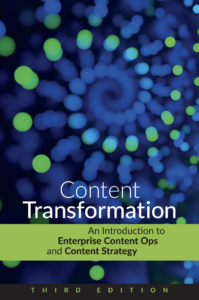Tool or trap? Find the problem, then the platform
Tempted to jump straight to a new tool to solve your content problems? In this episode, Alan Pringle and Bill Swallow share real-world stories that show how premature solutioning without proper analysis can lead to costly misalignment, poor adoption, and missed opportunities for company-wide operational improvement.
Bill Swallow: On paper, it looked like a perfect solution. But everyone, including the people who greenlit the project, hated it. Absolutely hated it. Why? It was difficult to use, very slow, and very buggy. Sometimes it would crash and leave processes running, so you couldn’t relaunch it. There was no easy way to use it. So everyone bypassed using it at every opportunity.
Alan Pringle: It sounds to me like there was a bit of a fixation. This product checked all the boxes without actually doing any in-depth analysis of what was needed, much less actually thinking about what users needed and how that product could fill those needs.




